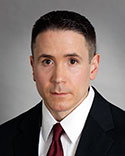In a recently published decision, the U.S. Bankruptcy Court for the Eastern District of North Carolina held that a creditor violated both the automatic stay and discharge injunction when the creditor made a criminal referral against a debtor on account of a bounced rent check. The creditor contended that its actions fell within an exception to the automatic stay for the "commencement or continuation of a criminal action or proceeding" against a debtor. The court, however, rejected this contention, concluding that the creditor’s "primary purpose" in commencing the criminal proceeding was to recover a debt. See, In re Kimbler, 624 B.R. 774 (Bankr. E.D.N.C. 2020).
Background
On Jan. 1, 2019, Lori Jayne Kimbler leased from Robert L. Hill and Bob Hill Enterprises, Inc. certain real property in Havelock, North Carolina, where Kimbler operated an antiques store. On May 8, 2019, Kimbler wrote a check to Hill for rent in the amount of $577.50. Approximately five days later, the check was returned to Hill because it was drawn on an account with insufficient funds.
Unfortunately, Kimbler’s antiques business turned out to be short-lived: she wound up closing her shop and vacating the leased premises at the end of May 2019. Shortly thereafter, Diane Ferguson, a Hill employee who handled rental and collection matters, spoke with Kimbler on several occasions concerning the NSF check and rent delinquency.
On Sept. 11, 2019, Kimbler, in pro per, filed a "skeleton" petition under Chapter 7 of the Bankruptcy Code. The mailing matrix submitted with her petition included Hill’s name, but listed an incorrect address. The address, however, was corrected two weeks later when Kimbler filed her bankruptcy schedules. Kimbler also testified that the same day her petition was filed, she hand-delivered to Hill’s office a copy of the bankruptcy court’s "Notice of Chapter 7 Bankruptcy Case."
One day following Kimbler’s bankruptcy filing, Ferguson sent a letter to Kimbler demanding payment of $607.50, which included the past-due rent plus returned check and bank fees. Ferguson drafted the demand letter on Bob Hill Enterprises letterhead, and signed it as "Bob Hill." The demand letter stated that if Hill did not receive payment within 10 days, "legal papers will be filed. No further notice will be given before legal steps are taken." Ferguson testified that Hill was not "specifically aware" of the demand letter, and that Ferguson prepared the demand letter as part of her normal debt collection duties within the scope of her employment.
On Sept. 16, 2019, Kimbler received the demand letter, and returned to Hill’s office to notify Hill of her bankruptcy filing. Ferguson admitted that Kimbler informed her of the bankruptcy filing on that date, although Ferguson denied that she or Hill had ever received a copy of Kimbler’s bankruptcy notice.
On Oct. 2, 2019, Ferguson reported the NSF check to a county magistrate. The following day, the state court issued a criminal summons against Kimbler, directing that Kimbler appear before the magistrate on Oct. 31, 2019, to answer the NSF charge that had been brought. On Dec. 4, 2019, Kimbler, now represented by counsel, sent a letter to Ferguson, asserting that Hill’s actions in initiating the criminal action violated the automatic stay.
On Dec. 30, 2019, the bankruptcy court entered an order granting Kimbler a discharge of her debts. Although Hill was served with a copy of the court’s order, neither Hill nor Ferguson took any action to have the criminal matter dismissed. On July 2, 2020, during a continued hearing in the criminal action, Kimbler informed the prosecutor of her bankruptcy case. A week later, the state court dismissed the criminal action.
Kimbler, through her counsel, then filed a motion for actual and punitive damages against Hill, contending that Hill’s initiation and subsequent failure to seek dismissal of the criminal action violated the automatic stay and discharge injunction.
Court’s Analysis
As the bankruptcy court explained, the automatic stay, an "integral protection of bankruptcy," bars "any act to collect, assess, or recover a claim against the debtor that arose before the commencement of the case." See 11 U.S.C. Section 362(a)(6). Under sub-section (k) of the statute, "an individual injured by any willful violation of the automatic stay shall recover actual damages, including costs and attorney fees, and, in appropriate circumstances, may recover punitive damages." To recover damages for a stay violation, a party must establish three elements: "that a violation of the stay occurred; that the violation was willful; and that the violation caused actual damages." The bankruptcy court found that Kimbler had established all three elements of her stay violation claim against Hill.
Firstly, through Ferguson, Hill was determined to have violated the automatic stay by making a criminal referral for the NSF check. The court rejected Hill’s argument that these actions fell within the exception to the automatic stay found at 11 U.S.C. Section 362(b)(1), which provides that the filing of a petition does not operate as a stay of "the commencement or continuation of a criminal action or proceeding against the debtor." More particularly, the court encountered little difficulty distinguishing between Section 362(b)(1)’s applicability to a "prosecuting entity," on the one hand, and a creditor privately registering a criminal complaint, on the other hand. The court reasoned that, while a bankruptcy filing "should have no impact on whether a prosecuting entity elects to commence or continue a criminal action against a debtor," any effort by a creditor to pursue criminal charges against a debtor "for the primary purpose of attempting to recover a debt" would violate the stay. Since Hill’s actions in initiating the criminal action were for the primary purpose of recovering a debt, the court found that a violation of the stay had occurred.
Secondly, the court found that Hill’s violation of the stay was willful. For a creditor’s stay violation to be willful, "the creditor need not act with specific intent, but must only commit an intentional act with knowledge of the automatic stay." Hill, "bound by the actual implied knowledge" of his agent, Ferguson, received actual notice of Kimbler’s bankruptcy filing and, the court determined, commenced the criminal action in the "hope that the state court would order restitution for Hill’s benefit and effectively collect his pre-petition debt for Hill."
Thirdly, the court found that Kimbler had sustained actual damages on account of the stay violation, as Kimbler was required to attend four hearings in the criminal action and incurred attorneys’ fees in filing and prosecuting the sanctions motion against Hill. Additionally, the court found that Kimbler suffered emotional distress in connection with the criminal action, which warranted the imposition of punitive damages. The court did not accept Hill’s argument that Kimbler could have mitigated her damages had she notified the state court of her bankruptcy earlier, finding that the responsibility "fell squarely upon Hill, especially after receiving the stay violation letter and the order of discharge."
The court additionally found that Hill’s actions violated the discharge injunction set out in Section 524(a)(2) of the Bankruptcy Code, which "operates as an injunction against the commencement or continuation of an action, the employment of process, or an act, to collect, recover or offset any debt as a personal liability of the debtor." The court explained that punitive damages may be appropriate when a creditor violates the discharge injunction through "egregious conduct, malevolent intent, or clear disregard of the bankruptcy laws." In this instance, Hill’s failure to request dismissal of the criminal action, despite having received notice of the discharge, constituted an intentional violation of the discharge injunction, further supporting an award of sanctions.
Based upon Hill’s violations of the automatic stay and discharge injunction, the court granted Kimbler’s motion and directed Hill to pay Kimbler sanctions totaling $3,410, consisting of $400 in actual damages and $3,010 in punitive damages ($10 per day for the 301 days between the date of the demand letter and dismissal of the criminal action). The court also ordered Hill to pay Kimbler’s counsel $2,500 for the attorney fees and costs associated with the motion.
Conclusion
The Kimbler decision presents two important lessons. Firstly, creditors should not assume that a post-bankruptcy action taken to collect a debt from a debtor falls within any given exception to the automatic stay provisions of the Bankruptcy Code. Instead, creditors should consult experienced counsel to assist in applying relevant facts to applicable law. Secondly, as creditors will likely be responsible for the actions of their employees and agents, they should ensure that these agents and employees are educated about the potential pitfalls of engaging in any collection activity against a debtor in bankruptcy.
Rudolph J. Di Massa, Jr., a partner at Duane Morris, is a member of the business reorganization and financial restructuring practice group. He concentrates his practice in the areas of commercial litigation and creditors’ rights.
Geoffrey A. Heaton, special counsel at the firm, practices in the area of business reorganization and financial restructuring, concentrating on representation of secured creditors, Chapter 11 and Chapter 7 trustees, creditors’ committees and unsecured creditors.
Reprinted with permission from The Legal Intelligencer, © ALM Media Properties LLC. All rights reserved.









